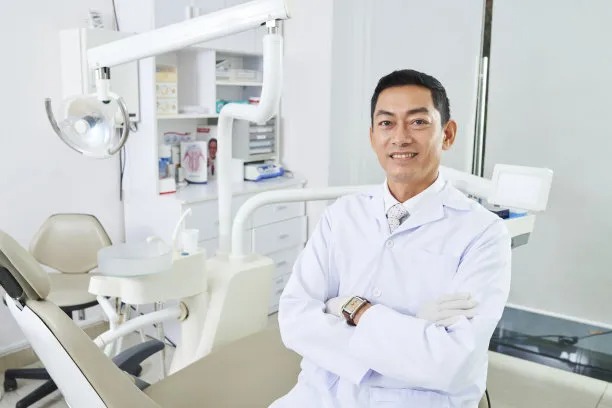Summary: The extraction of a tooth is often viewed as a last resort in dental care, yet it plays a crucial role in promoting long-term oral health and enhancing comfort for patients. This article explores four key aspects of tooth extraction: preventing the spread of infection, alleviating pain and discomfort, improving overall dental alignment, and facilitating better oral hygiene practices. By understanding the significance of tooth extraction, both patients and dental professionals can make informed decisions that contribute to the overall quality of dental care and individual health outcomes.
1. Preventing the Spread of Infection

Tooth extraction is vital in preventing the spread of infection within the oral cavity. When a tooth becomes severely decayed or infected, the bacteria can accumulate and potentially migrate to surrounding teeth and jawbone. Leaving a problematic tooth untreated may result in an abscess, which can lead to more extensive health issues, including systemic infections.
Furthermore, extracting an infected tooth can help to curtail the risk of these infections affecting adjacent tissues, including the gums. By removing the source of infection, dental professionals can help protect the integrity of the oral cavity and preserve the health of neighboring teeth. This proactive approach is essential in maintaining a well-functioning mouth and preventing future complications.
In addition to oral health implications, preventing infection through tooth extraction can also have broader health benefits. Research has shown links between oral health and systemic conditions such as heart disease and diabetes. Thus, timely extraction can contribute not only to local but also systemic health improvement.
2. Alleviating Pain and Discomfort
One of the most immediate benefits of tooth extraction is the relief of pain and discomfort. Patients suffering from issues such as impacted wisdom teeth or severe dental decay often experience chronic pain. Extraction can provide immediate relief, allowing individuals to return to their daily activities without the burden of constant discomfort.
The pain associated with dental issues can severely affect quality of life, causing difficulties in speaking, eating, and even sleeping. By addressing these issues through extraction, dentists can help to restore a patient’s well-being, enabling them to enjoy food and social interactions again without fear of pain.
Moreover, alleviating discomfort from one problematic tooth may prevent a cascade of additional dental issues. When patients avoid eating or chewing on one side of their mouth due to pain, it can lead to further complications, including jaw pain and muscle fatigue. Therefore, extraction may be a necessary step in ensuring long-term comfort and health.
3. Improving Overall Dental Alignment
Another important aspect of tooth extraction is its contribution to enhancing dental alignment. In cases where overcrowding occurs within the mouth, extracting specific teeth can create space for proper alignment during orthodontic treatment. This is especially pertinent in teenagers and young adults who may require braces to achieve an optimal bite.
When teeth are misaligned, they can lead to various issues, including abnormal wear patterns, jaw strain, and even speech impediments. By extracting teeth to facilitate better alignment, orthodontic interventions can be more effective, leading to a functional and aesthetically pleasing smile.
In this context, tooth extraction is not merely a negative consequence of poor dental health; rather, it becomes a strategic approach in facilitating a healthier oral environment and aligning the teeth for optimal function—a critical aspect of long-term dental care.
4. Facilitating Better Oral Hygiene Practices
Tooth extraction can significantly enhance oral hygiene practices, especially for individuals struggling to maintain their dental health. Crowded teeth or those that are difficult to reach can hinder effective brushing and flossing. Extracting problematic or excess teeth can simplify an individuals oral hygiene routine, making it easier to keep the mouth clean.
When patients have fewer teeth to manage, they are more likely to practice diligent oral hygiene, reducing their risk of decay and gum disease. A cleaner mouth not only feels more comfortable but also contributes to improved overall health, as bacteria and plaque buildup are reduced.
Moreover, succeeding in maintaining good oral hygiene after a tooth extraction reinforces positive dental habits. Patients may realize the benefits of being more conscientious about their dental care, leading to better long-term outcomes and a healthier mouth.
Summary:
In conclusion, the importance of tooth extraction extends far beyond the immediate need for dental intervention. It serves as a preventive measure against infection, offers relief from pain, promotes dental alignment, and facilitates better oral hygiene practices. Understanding these elements empowers both patients and practitioners to engage in informed discussions regarding dental care, ensuring the best outcomes for long-term oral health.
This article is compiled by Vickong Dental and the content is for reference only
Vickong Dental
Vickong Dental is a large medical group established in Hong Kong in 2008 by professors from well-known medical universities in Guangdong and Hong Kong, as well as medical doctors from key national '985' universities (including Master's supervisors and senior professors). The chain of branches brings together expert dentists with PhDs and Master's degrees from Hong Kong and Mainland China, committed to providing high-quality dental treatment.
"Vickong Dental Practices the University Motto of 'Healing and Serving Society,' with a Stable Operation for Sixteen Years. It Has Been honored with Hong Kong Enterprise Leaders's Choice,' and is a Global Trusted Implant Center for the Nobel Implant System. Recommended by Hong Kong Metro Broadcast and Guangdong Television, it Serves Customers from Over Thirty Countries and Regions, Gaining the Trust and Favor of Citizens from the Guangdong-Hong Kong-Macau Greater Bay Area and Surrounding Cities.

Thousands of customers' unanimous praise
The most recognized and highly recommended dental service by customers in the Guangdong-Hong Kong-Macau Greater Bay Area
We Ensure You Receive Detailed Care and Attention Here
Hong Kong standards, Shenzhen prices, Your Trusted English-speaking dentists

Vickong Dental Medical-Grade Instrument Disinfection Process
Vickong Dental Medical-Grade Instrument Disinfection Process

Vickong Dental Chain: A Warm and Comfortable Environment for Treatment






Appointment Hours

Q&A
Why choose Vickong Dental?
Vickong Dental practices the university motto 「Medicine to Benefit Society」, with each branch bringing together highly qualified dentists with doctoral and master’s degrees from Hong Kong and the Mainland, and has maintained seventeen years of steady operation。Recipient of 「2024 Hong Kong Enterprise Leaders Brand」, 「2025 Hong Kong Enterprise Leaders Brand」, a Nobel Biocare Global Trusted Implant Center, and a brand recommended by Metro Radio Hong Kong and Guangdong TV。
To date, we have served customers from more than thirty countries and regions,earning exceptionally high word-of-mouth recognition and trusted recommendations from residents across the Guangdong-Hong Kong-Macao Greater Bay Area and surrounding cities
We have eight major branches in Zhuhai、Shenzhen,and a consultation and service assurance center in Hong Kong,so you can book a free consultation at any time for any questions,which is very reassuring.
If I do not accept the quotation after the CT scan, will I be charged??
No! As long as the actual treatment has not started, you will not be charged any fees.
Will there be any additional charges during the treatment process?
No, there won’t be any additional charges. Before treatment begins, we will clearly explain the treatment plan and its corresponding fees. Only after the patient agrees and signs the consent form will we proceed with the dental service.
Can I pay in Hong Kong dollars?
Yes. Vickong Dental accepts payment in Hong Kong dollars. The amount will be converted based on the exchange rate of the day, and the applicable rate will be clearly communicated to you in advance.
Can I reschedule my appointment at any time?
Yes. Please contact us via **WeChat** or **WhatsApp** as early as possible, providing your original appointment time and details, along with your preferred new date and time slot for rescheduling.













